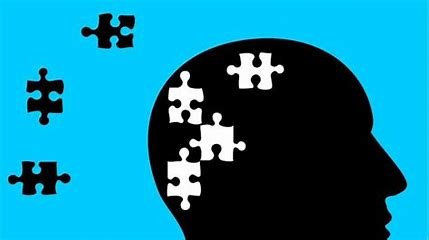The Hidden Dangers of Sleep Deprivation: What Happens to Your Brain?

Are you getting enough sleep? This essential question can dramatically impact your cognitive health. Sleep deprivation isn’t merely an inconvenience; it poses serious risks to your brain’s functionality and overall well-being. Let’s explore the profound effects of insufficient sleep and why prioritizing restful nights is crucial for optimal brain performance.

The Memory Crisis: How Sleep Affects Recall
When we stay awake, our brains gather an immense amount of information, yet it’s during sleep that we solidify our memories. This critical process, known as memory consolidation, helps us differentiate between what to keep and what to forget. Without adequate rest, your brain struggles to store and retrieve information effectively, leading to impaired memory.
Cognitive Slowdown: The Brain’s Efficiency Decline
Think of your brain as a high-performance machine; lack of sleep acts like sand in the gears. Sleep deprivation slows down cognitive processing, making it more challenging to concentrate, solve problems, and absorb new information. As your brain’s efficiency declines, the risk of errors in judgment increases, affecting your daily tasks and decision-making abilities.
Emotional Turbulence: Sleep’s Role in Mood Regulation
Sleep deprivation doesn’t just impact your thinking—it also disrupts your emotional balance. The amygdala, which regulates emotions, becomes less effective without enough sleep. This inefficiency makes you more prone to mood swings, irritability, and heightened stress levels. Chronic sleep deprivation can lead to severe mental health issues, including anxiety and depression.
To learn more about enhancing your mental well-being, check out our article on The Importance of Sleep Hygiene.

Toxin Buildup: The Brain’s Nightly Detox
Did you know that sleep is vital for your brain’s detoxification process? While you rest, your brain clears out harmful toxins accumulated throughout the day, including proteins linked to neurodegenerative diseases like Alzheimer’s. Insufficient sleep compromises this cleansing process, increasing the risk of long-term brain health issues.
The Extreme Consequences: Hallucinations and Cognitive Breakdown
In extreme cases of sleep deprivation, the brain’s ability to distinguish between reality and imagination deteriorates, leading to alarming symptoms such as hallucinations and severe cognitive impairment. The longer you go without sleep, the more your cognitive functions break down, impacting your ability to navigate daily life effectively.

Prioritize Sleep for Better Brain Health
Sleep is not a luxury; it is an essential necessity for maintaining optimal brain function and overall well-being. Sufficient rest allows your brain to think clearly, make sound decisions, and regulate emotions effectively. Consistent sleep deprivation can lead to short-term cognitive challenges such as impaired memory and reduced concentration.
Over time, these issues can escalate into long-term emotional struggles, including increased anxiety and a greater risk of mood disorders like depression. This decline in mental health can significantly diminish your quality of life, affecting relationships and work performance. Prioritizing sleep is crucial for both cognitive functionality and emotional stability, making it a vital component of a healthier, more balanced life.
If you’re interested in a compelling story about community support and resilience, be sure to check out my article titled “Nurse Tragically Passes Away After GHC500k Was Raised for Her Surgery by Auntie Naa.” This piece delves into the heartbreaking circumstances surrounding a dedicated nurse and highlights the power of compassion in the face of adversity. Don’t miss it!















